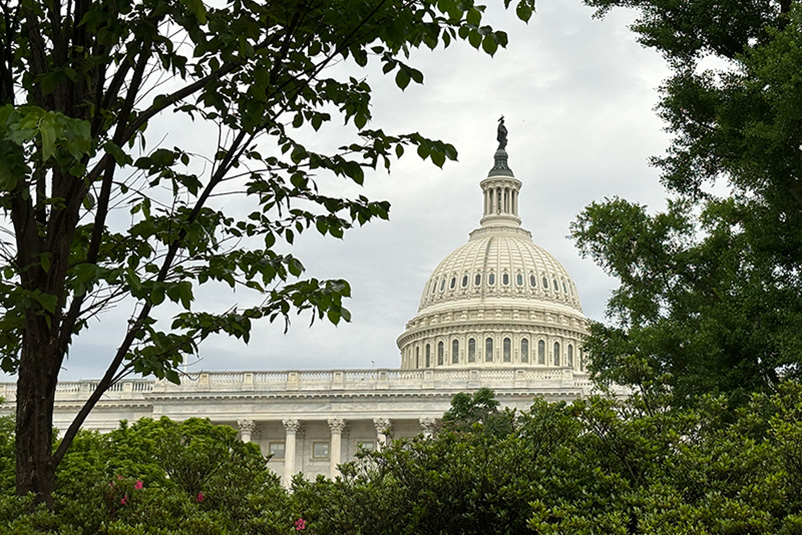
National Golf Day participants don’t go into meetings with members of Congress unprepared. They are armed with training and materials to help them share the united voice of golf while they advocate for the collective legislative and regulatory issues that impact the game and the industry.
While many issues affect golf, American Golf Industry Coalition (AGIC) government affairs professionals meet in February to determine which three pressing issues will take the spotlight for that year’s National Golf Day.
For 2025, National Golf Day participants will focus on the issues of modernizing the tax code, passage of the PHIT Act and continuing to include the National Turfgrass Research Initiative in the 2025 Farm Bill.
Tax Code Modernization
When the current tax code was written more than 50 years ago, the golf industry mainly consisted of private clubs. So, golf courses were lumped in with industries such as massage parlors, racetrack, gambling facilities and liquor stores that were restricted from accessing economic development tools and disaster relief that is available to other small businesses and recreational facilities.
Earlier this year, Reps. Claudia Tenney (R-NY) and Jimmy Panetta (D-CA) cosponsored H.R. 1583 Parity for Athletic Recreation (PAR Act), which would amend the tax code to remove existing restrictions on the use of tax-exempt bond proceeds for golf facilities. National Golf Day Advocates will encourage support of H.R. 1583 so that golf is no longer unfairly penalized.
PHIT Act
PHIT stands for Personal Health Investment Today and would allow Americans to use money saved in pre-tax health savings accounts (HSAs) and flexible spending accounts (FSAs) toward qualified sports and fitness expenses including golf lessons, green fees and more.
The PHIT Act was reintroduced on March 26 with H.R. 2369, co-sponsored by Reps. Mike Kelly (R-PA) and Jimmy Panetta (D-CA), and S. 1144, co-sponsored by Sens. John Thune (R-SD) and Chris Murphy (D-CT).
AGIC supports the PIT Act because it offers 100 million Americas the opportunity to lower the cost of life-long health.
Farm Bill
The Farm Bill is a package of legislation that governs a wide array of agriculture and food programs. It is generally passed every five to six years, but the most recent Farm Bill that was passed in 2018 was repeatedly extended is set to expire in 2025.
Congress recognized the positive contribution of turfgrass to our environment and economy when it authorized turfgrass research (the National Turfgrass Research Initiative) as a priority in the 2018 Farm Bill. Through Appropriations, there is now $3 million a year for USDA scientists to research turfgrass genetics and how to use this information to improve turfgrass cultivars. Turf comprises 60+ million acres and is the fourth largest crop in the U.S.
AGIC is urging congress to reauthorize the National Turfgrass Research Initiative in the 2025 Farm Bill.
Angela Hartmann is GCSAA's director of communications.